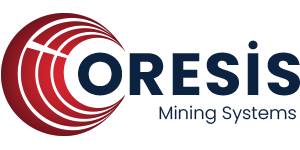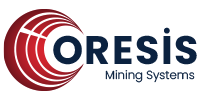
Dedusting
Jet Pulse Filters
Jet pulse filters are high-efficiency filtration systems used in industrial facilities to prevent air pollution and control dust emissions. These systems are widely preferred in cement, mining, chemical, food, pharmaceutical, metal processing, and energy industries, offering continuous and uninterrupted operation thanks to their automatic cleaning mechanism with compressed air.
Compared to conventional filtration systems, jet pulse filters provide longer service life, lower maintenance requirements, and higher efficiency, ensuring improved air quality, workplace safety, and environmental sustainability in industrial plants.
How Do Jet Pulse Filters Work?
- Dust-laden air enters: The air flows through the filter inlet, and particles adhere to the filter surface.
- Jet pulse system activates: Compressed air is periodically released to clean the filters.
- Separated dust particles settle: The removed dust falls into the collection hopper, preventing clogging.
These features minimize manual maintenance needs and ensure long-term performance even in high dust load environments.
Advantages of Jet Pulse Filters
- High filtration capacity: Effectively separates fine and heavy dust particles, ensuring clean air output.
- Jet pulse cleaning mechanism: Compressed air cleans the filters automatically, extending their lifespan.
- Low maintenance costs: Continuous self-cleaning reduces the need for frequent filter replacements.
- Environmentally friendly solution: Meets air quality regulations by minimizing dust emissions.
- Automated operation system: Can function as fully automated or semi-automated with PLC control.
- Versatile application: Adapts to different industries and various types of dust for efficient performance.
- Durable material options: Available with special materials resistant to high temperatures, humidity, and abrasive conditions.
Applications of Jet Pulse Filters
- Cement & mining: Controls dust in cement silos, crushing plants, and quarries.
- Metalworking & welding fume filtration: Removes particles from plasma cutting, grinding, and foundry operations.
- Food industry: Used in the processing of flour, sugar, coffee, spices, and starch.
- Chemicals & plastics: Ensures clean air during chemical powder, polymer, and pigment production.
- Energy & biomass plants: Filters dust generated from fuel combustion, reducing environmental pollution.
- Agriculture & livestock: Improves air quality in grain, feed, and fertilizer processing plants.
Types of Jet Pulse Filters
- Cartridge jet pulse filters: Compact design with high efficiency for fine particle filtration.
- Bag jet pulse filters: Ideal for heavy dust loads, commonly used in heavy industry applications.
- Mobile jet pulse filters: Portable systems for flexible use across different production areas.
- High-temperature jet pulse filters: Designed for industrial furnaces and high-heat environments.
Key Considerations When Choosing a Jet Pulse Filter
- Filtration efficiency: The filter material should match the facility’s air quality requirements.
- Airflow capacity: The filter system must handle the facility’s air volume efficiently.
- Particle size and type: The filter selection should match the dust type, whether fine or large particles.
- Jet pulse pressure system: The system should have sufficient compressed air capacity for effective cleaning.
- Material durability: Filters for abrasive, high-temperature, or humid environments should be built accordingly.
- Automation level: Choose between fully automated or semi-automated systems based on operational needs.
Improve Air Quality with Oresis Jet Pulse Filters
At Oresis, we provide high-efficiency and long-lasting jet pulse filter solutions to help businesses maintain air quality and comply with environmental regulations.
Send Your Questions and Requests:
You can call us for more detailed technical information about our products.
Contact now
Our e-mail address
Our phone number

